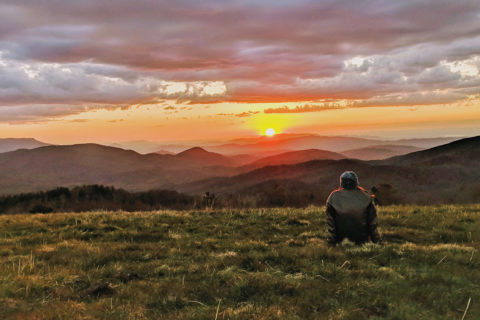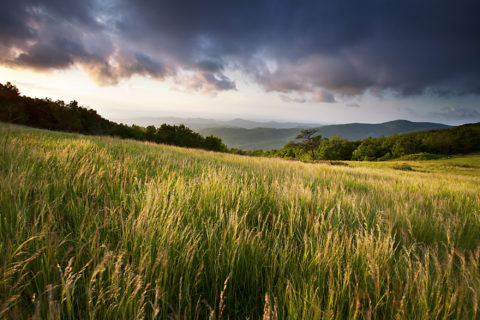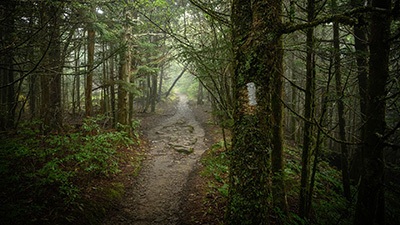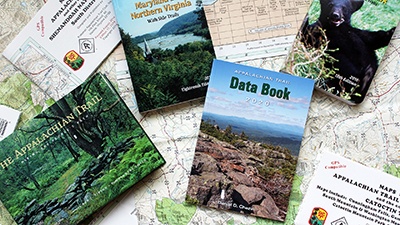By Jordan Bowman, ATC Director of Communications
Restoring the Atlantic Salmon’s Path to Henderson Brook
December 18, 2019
Conserving the Appalachian Trail (A.T.) means more than maintaining the footpath and preserving views — it also means protecting the plants and animals that depend on Trail environments. The A.T. and its surrounding lands are home to a huge variety of native wildlife, and all of them have a part in ensuring the health of these ecosystems.
One of these native species, the federally endangered Atlantic salmon, calls the cold streams of Maine’s 100 Mile Wilderness home. Atlantic salmon where historically reduced to dangerously low population levels by overfishing and the construction of dams and other barriers along their migration routes. As is the case for Atlantic salmon along the A.T., logging roads were originally constructed over streams without consideration for the impacts they would have on fish passage.
“Some of these old logging roads block access to prime aquatic habitat,” said Marian Orlousky, ATC’s Director of Science and Stewardship. “Culverts built to direct water under roads were often constructed so that they were elevated above the water on the downstream side. Fish can’t make the leap up and into the culverts, preventing them from migrating any further up-stream.”
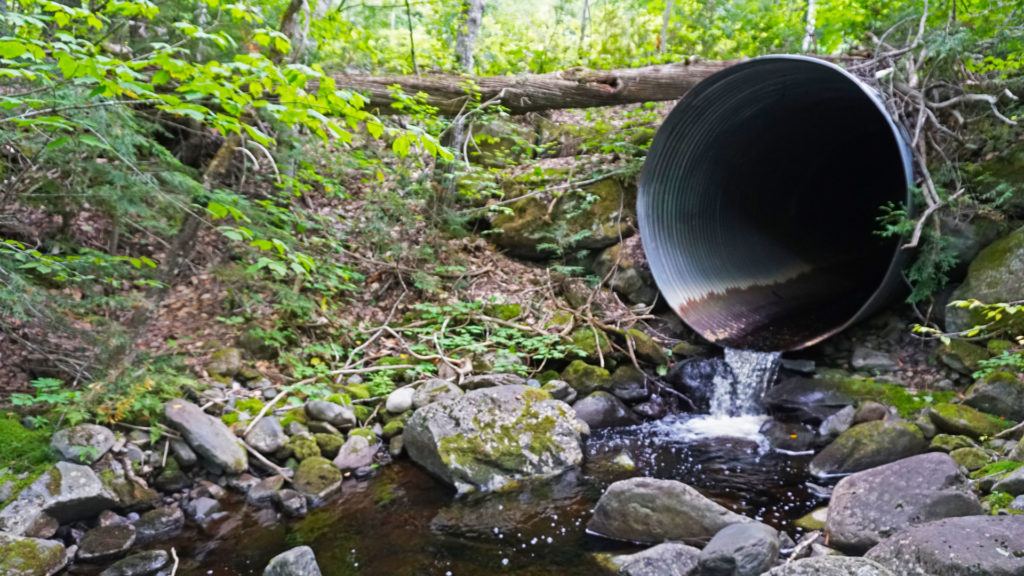
The road crossing over Henderson Brook currently directs water flow through a culvert, blocking fish from reaching ideal rearing waters further upstream.
Henderson Brook is one such waterway, which flows into the West Branch of the Pleasant river near the A.T. and the much-revered Hermitage and Gulf Hagas. To help Atlantic salmon and native brook trout thrive, the ATC and its partners at the Appalachian Mountain Club and The Nature Conservancy are working to restore fish-friendly passage along the A.T. with support from the Bass Pro Shops and Cabela’s Outdoor Fund.
“Essentially, we will be removing the culvert blocking Henderson Brook entirely and, in its place, constructing a bridge that will allow water to flow freely,” said Orlousky. “By removing road obstructions and restoring the stream environments beneath them, Atlantic salmon and brook trout will once again have access to valuable rearing waters that have been blocked for decades.”
While there is still a long way to go when it comes to restoring their original numbers, this project will be another step toward the recovery of Atlantic salmon in Maine and a healthier A.T. ecosystem.
Projects like this are only made possible through the dedication of our members and donors! By giving a gift to the Trail today, you are ensuring that the unique A.T. experience is preserved and protected forever and for all.

